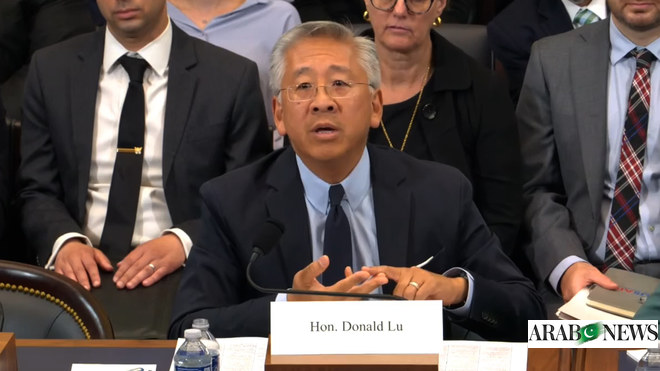RAWALPINDI: For Kishwar Nahid, one of Pakistan’s greatest living Urdu poets and writers, visiting the hundreds of bookstores that line Rawalpindi’s main Sadar Market used to be a regular Sunday morning ritual.
But as the number of stalls dwindled and book peddlers disappeared, all Nahid and people like her were left with was a fading literary culture and a deep sense of loss for a place that was once the epicentre of Rawalpindi’s intellectual life.
“Every Sunday morning, Zahid Dar [Urdu poet]Intisar [Hussain] Serve [novelist]I used to go there a lot, and so did all my fellow writers. [Rawalpindi book bazaar] “I tried to pick up books,” Nahid told Arab News in an interview this week. “Books became all the rage.”
Rawalpindi’s outdoor bookstores emerged in the 1980s and thrived until at least 2010, when they began to slowly decline, said Fareed-ul-Haq, a 69-year-old bookseller.
“I have been selling books in this market for 25 years. This roadside book market has been around for 50 years,” he told Arab News, adding that people would travel from other cities to visit his stall and would often spend hours browsing the books, leaving handwritten notes of the titles of the books they wanted.
“I’ve seen this market at its peak when it was so crowded it was difficult to walk. Now people bring in books, only to find out they were their grandparents’ books, and the grandchildren don’t value them so they want to sell them.”
Roadside stalls sell a wide variety of books, both new and second-hand, including second-hand books, textbooks, history books, novels in different languages, and magazines of all kinds.
But the rise of digital media and online bookstores is impacting the viability of the book market, with smartphones and social media changing the way people consume information and read around the world, sellers and customers say.
“We live in the age of social media, online and virtual books, and many people no longer prefer to read physical books,” Noaman Sami, a media science student at Riffa International University in Rawalpindi, told Arab News.
According to Pakistani short-story writer, novelist and literary critic Muhammad Hameed Shahid, economic factors are also behind the decline of the book market.
Rising rents, inflation, and the rising cost of living have made it difficult for many bookstores to stay in business, and customers have less money to spend on luxuries like books. Urban development projects have turned literary sections into commercial and residential developments, and the book market has disappeared.
“Ordinary people often cannot afford to buy expensive books, but treasures can be found in roadside bookshops,” Shahid said. “They sell a wide variety of books and these vendors who line the sidewalks deserve support so that through them the flame of knowledge does not go out and books continue to reach children.”
The writer said Bazaar has played a vital role in his own literary journey.
“These bookshop people who sat on the sidewalk and had their books spread out all over the place played a vital role in my career and inspired me to become a writer.”
Future generations of Rawalpindi will not get to experience this, lamented Haq, the bookseller.
“This market used to be packed,” he said one Sunday morning this month, as he sat alone in front of his shop, waiting for customers, “but now it’s almost empty.”

